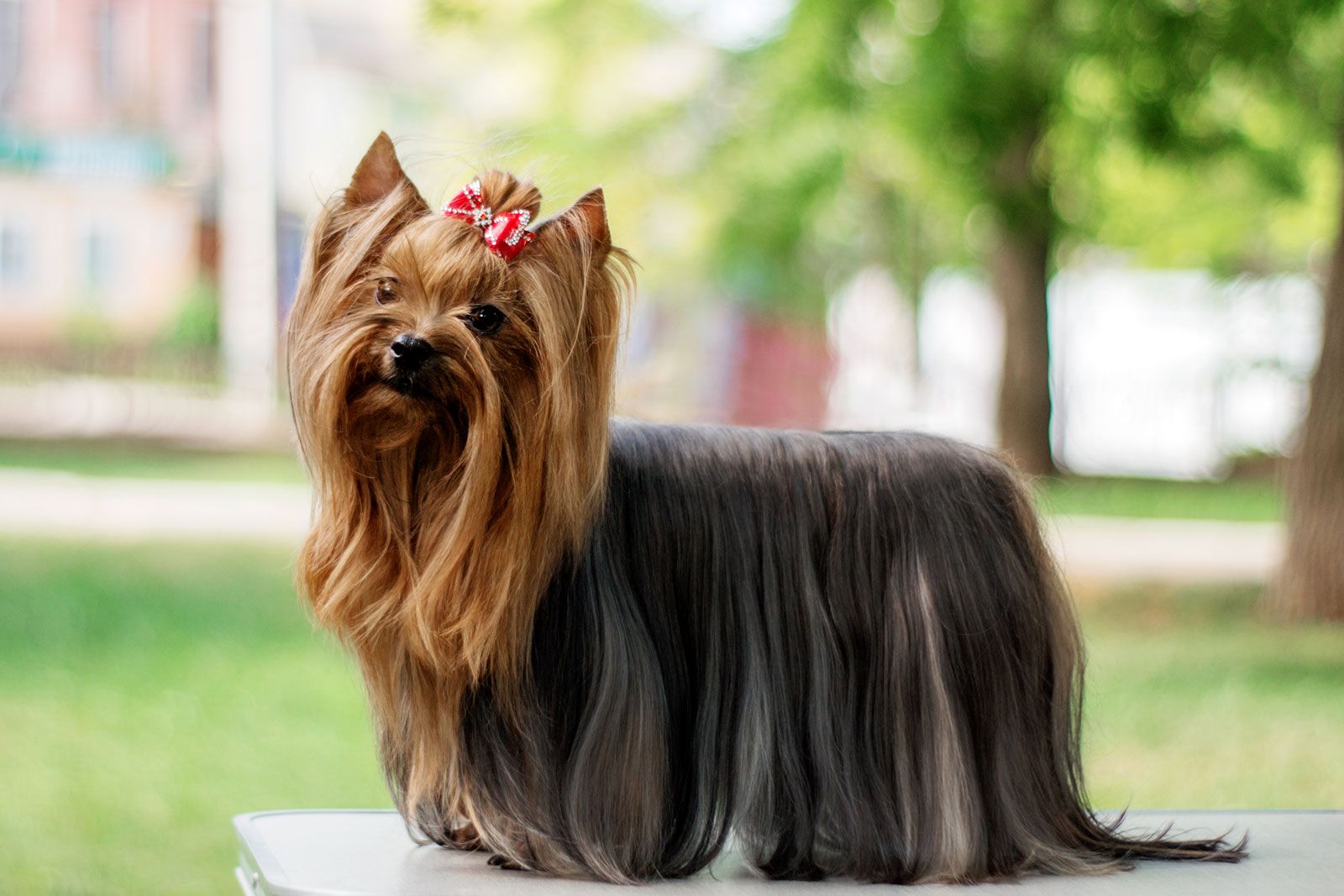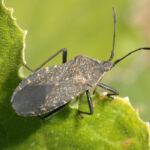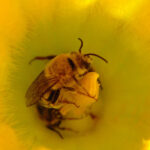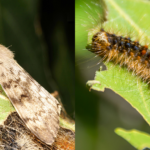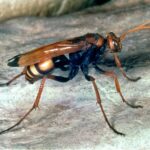The Yorkshire Terrier, also known as Yorkie, is a small and adorable breed of dog that originated in Yorkshire, England. This charming little companion has a fascinating history, interesting facts, and a unique classification that sets it apart from other animals.
The history of the Yorkshire Terrier dates back to the 19th century when it was bred as a working dog to catch rats in clothing mills. Over time, it gained popularity as a fashionable pet among the elite, thanks to its miniature size and elegant appearance. This breed has since become a beloved household pet worldwide due to its loyal and affectionate nature.
Despite its small stature, the Yorkshire Terrier is surprisingly brave and confident. It has a silky, long coat that must be groomed regularly to keep it in pristine condition. These adorable canines are known for their playful and energetic temperament, making them perfect companions for families and individuals of all ages.
The Yorkshire Terrier is classified as a toy breed, which means it is one of the smallest dog breeds in the world. Its size typically ranges from 6 to 7 inches in height and weighs around 7 pounds. While it may be tiny in size, its personality is larger than life, full of spunk, and a joy to be around.
In our blog, we aim to provide you with insightful articles on various animal breeds, including the Yorkshire Terrier. If you want to explore more breeds and learn about over 155 animals, we already have an extensive article with all the fascinating information you need. So, whether you are an animal lover or simply interested in discovering new facts about different species, our blog is the perfect place to embark on an exciting adventure into the animal kingdom.
History of Yorkshire Terrier
The Yorkshire Terrier has a long and fascinating history that dates back to the mid-19th century in northern England. In the early days, Yorkshire Terriers were bred to catch rats and other small vermin that infested factories and mines in the Yorkshire region. Their small size and fearless nature made them perfect for this job.
As time went on, people began to notice the charming and elegant appearance of the Yorkshire Terrier. They started to breed these dogs with a focus on their looks rather than their working abilities. This led to the development of the modern Yorkshire Terrier we see today, with their long, silky hair and compact yet delicate build.
In the late 1800s, the Yorkshire Terrier gained popularity as a fashionable pet among the upper class. Their luxurious coat required regular grooming and their small size made them easy to carry around. This made them a favorite among ladies who took great pride in their pets. The breed quickly spread beyond Yorkshire and became beloved all over the world.
Today, the Yorkshire Terrier is known for their bold and confident personality. They may be small, but they have a big heart and love to be the center of attention. They make great companions for people of all ages, from children to the elderly. Their size makes them ideal for city living, as they don’t require a large amount of space to be happy.
In conclusion, the Yorkshire Terrier has come a long way from its humble beginnings as a working dog. Its transformation into a beloved and fashionable pet has made it one of the most popular dog breeds in the world today. With its charming looks and playful personality, it’s no wonder that the Yorkshire Terrier continues to capture the hearts of people everywhere.
Importance of Yorkshire Terrier
The Yorkshire Terrier animal is important for many reasons. First of all, they make great companions! These little dogs are known for their loyalty and love towards their owners. They are always there to cheer you up when you are feeling sad or lonely. They can become your best friend and bring happiness to your life.
Another reason why Yorkshire Terriers are important is because they are easy to take care of. They are small in size, which makes them suitable for living in apartments or small homes. They don’t need a lot of space to run around, and they are content with short walks and playtime inside the house. Their size also makes it easier to groom and bathe them, as compared to larger dogs.
Lastly, Yorkshire Terriers are important because they are intelligent and can be trained easily. They love to learn new tricks and commands, and they are quick to pick up on what you want them to do. This makes them a great choice for people who want a well-behaved pet. You can teach them to sit, stay, and even do fun tricks like roll over or fetch a ball. Their intelligence and eagerness to please make them a joy to train.
In conclusion, Yorkshire Terriers are important animals due to their companionship, ease of care, and intelligence. They bring joy to their owners’ lives and are wonderful pets for people of all ages. Yorkshire Terriers truly are special animals that deserve all the love and attention they receive.
Amazing Facts About Yorkshire Terrier
1. Yorkshire Terriers are a small breed of dogs that originated in Yorkshire, England.
2. They are often referred to as “Yorkies” for short.
3. Yorkies are known for their tiny size, usually weighing between 4 and 7 pounds (1.8 to 3.2 kilograms).
4. They have a lifespan of around 12 to 15 years.
5. Yorkies have a distinctive silky, long coat that comes in various colors, including tan and blue.
6. This breed requires regular grooming to maintain their luxurious coat and prevent matting.
7. Despite their small size, Yorkies are courageous and confident little dogs.
8. They are known to be highly intelligent and trainable, but can sometimes exhibit stubbornness.
9. Yorkies can make excellent companions for individuals and families alike, including those with older children.
10. They have a friendly and energetic nature, and enjoy spending time with their owners.
11. Although they have a small body, Yorkies have a big personality and are often described as feisty.
12. Due to their small size, Yorkies should be handled with care and supervised around young children to avoid accidental injury.
13. Like all dogs, Yorkies require regular exercise to keep them physically and mentally stimulated, though they don’t require as much space as larger breeds.
14. They can adapt well to apartment living as long as they receive daily walks and play sessions.
15. Yorkies are prone to certain health issues, such as dental problems and tracheal collapse, so regular vet check-ups are important to maintain their well-being.
Can we keep Yorkshire Terrier as our Pet?
Yes, we can keep Yorkshire Terriers as pets! Yorkshire Terriers are small and charming dogs that make great companions. They have a long and silky coat, and they are known for their energetic and playful nature. Yorkshire Terriers are easy to train and can adapt well to living in apartments or houses with small yards. They are also good with children and other pets, making them a popular choice for families.
Fortunately, the Yorkshire Terrier is not extinct! They are still alive and well, and many people around the world love having them as pets. However, it is important to remember that taking care of a Yorkshire Terrier requires commitment and responsibility. They need regular grooming to keep their coat healthy, and they also need daily exercise and mental stimulation to stay happy and healthy.
In conclusion, the Yorkshire Terrier is not extinct and can be kept as a pet. They are wonderful companions that bring joy to many families. However, it is essential to be ready to provide the care and attention that they need. If you are considering getting a Yorkshire Terrier as a pet, make sure to do your research and understand the responsibilities that come with owning a dog.
Size of Yorkshire Terrier
The Yorkshire Terrier is a small breed of dog that is loved by many people around the world. They are known for their cute appearance and lively personalities. Despite their small size, Yorkshire Terriers are filled with energy and love to play.
On average, Yorkshire Terriers grow to be about 6 to 7 inches tall at the shoulder and weigh between 4 and 7 pounds. That’s about the size of a small bag of potatoes or a watermelon! Due to their petite size, Yorkshire Terriers are great for people who live in apartments or small houses, as they don’t need a lot of space to run around.
Because of their tiny stature, Yorkshire Terriers need to be handled and cared for in a gentle way. It’s important to remember that they are delicate dogs and must be protected from any potential harm. Their small size also means that they may not be the best choice for families with young children, as they can accidentally hurt or drop them.
In conclusion, the Yorkshire Terrier is a small dog breed that is full of energy and love. They may be tiny, but they bring so much joy to their owners. If you are thinking about getting a Yorkshire Terrier, remember to handle them with care and provide them with all the love and attention they need.
Habitat of Yorkshire Terrier
Yorkshire Terriers are small and playful dogs that are often kept as pets. They have specific needs when it comes to their living environment, which is commonly known as their habitat. In order to keep Yorkshire Terriers happy and healthy, it is important to understand their habitat requirements.
Firstly, Yorkshire Terriers can adapt well to different living spaces, including apartments and houses. However, they prefer a warm and comfortable environment. They should have a designated area, such as a crate or a dog bed, where they can sleep and rest undisturbed. It is also essential to provide them with enough space to play and exercise, either indoors or outdoors. However, they should always be supervised when outside, as they have a tendency to wander off and may get lost.
Secondly, Yorkshire Terriers require a hygienic habitat. Regular grooming is important to maintain their beautiful coat and keep them clean. They should be bathed regularly and have their fur brushed to avoid tangling or matting. Additionally, their teeth should be brushed often to prevent dental problems. It is important to keep their living area clean and free from dirt or debris to prevent allergies or infections. Regular visits to the vet for vaccinations and check-ups are also necessary to ensure their good health and wellbeing.
In summary, Yorkshire Terriers thrive in warm and comfortable living spaces, such as apartments or houses. They require enough space for play and exercise while being supervised to prevent them from wandering off. Regular grooming, cleanliness, and visits to the vet are essential to keep them healthy and happy. By providing them with a suitable habitat, Yorkshire Terriers can lead a joyful and fulfilling life as beloved companions.
Evolution of Yorkshire Terrier
The Yorkshire Terrier comes from a long line of ancient small terrier breeds that were used for hunting rats and mice. These small terriers were first seen in the region of Yorkshire, England in the 1800s. They were bred by workers in the clothing mills to help get rid of rats that infested the mills.
Over time, people realized that these small terriers had a charming appearance and pleasing temperament, which made them great companions. Through careful breeding and selection, Yorkshire Terriers started to evolve into the breed we know today. They became smaller, with a silky coat that required grooming to keep it looking beautiful.
The popularity of Yorkshire Terriers grew quickly, and they were soon being shown in dog shows. People started breeding them not just for their hunting skills, but also for their looks. Breeders focused on breeding Yorkshire Terriers with a smaller size, a long silky coat, and a friendly and loving personality.
Today, Yorkshire Terriers are one of the most loved dog breeds worldwide. They are known for their small size, big personalities, and stunning appearance. They make wonderful pets for families and individuals alike. The evolution of the Yorkshire Terrier shows how humans can shape the appearance and behavior of animals over time through selective breeding.
Classification of Yorkshire Terrier
The Yorkshire Terrier, also known as the Yorkie, is a small and adorable dog breed that is very popular as a pet. It belongs to the toy group of dogs, which means it is one of the smallest breeds out there. The Yorkshire Terrier originated in England during the 19th century and was initially bred for catching rats in clothing mills. Today, they are loved by families all over the world for their cute appearance and friendly nature.
The Yorkshire Terrier has a distinctive look that sets it apart from other breeds. It has a long and silky coat that comes in various colors, including black and tan. Its coat requires regular grooming and care to keep it looking its best. This breed has a small and compact body with erect ears and a confident, alert expression.
In terms of temperament, the Yorkshire Terrier is known for being a spirited and lively dog. They are intelligent and quick learners, which makes them relatively easy to train. However, they can also have a stubborn streak, so consistent and patient training methods are essential. Despite their small size, Yorkshire Terriers are not afraid to stand their ground and can be quite fearless when it comes to protecting their loved ones.
To summarize, the Yorkshire Terrier is a toy breed dog that is adored for its cute appearance, lively personality, and intelligence. It belongs to the toy group of dogs and has a distinctive long and silky coat. This breed is a great companion for families who are looking for a small but spirited dog that will bring joy and love into their homes.
Types of Yorkshire Terrier
1. Yorkshire Terriers are small-sized dogs known for their adorable appearance and friendly nature. They are among the most popular toy breeds worldwide, commonly referred to as “Yorkies.”
2. These dogs have a distinctive long, silky coat that requires regular grooming to stay clean and healthy. Their fur can be styled in various ways, making them look stylish and fashionable.
3. Despite their small size, Yorkshire Terriers are known for their confident and fearless personalities. They are often called “big dogs in small bodies” due to their bold demeanor and protective instincts.
4. Yorkshire Terriers are highly intelligent and quick learners. They can easily understand commands and perform tricks, making them popular choices for obedience training and dog competitions.
5. These dogs are great companions and form strong bonds with their owners. They thrive on attention and love to be showered with affection, making them perfect pets for families and individuals seeking companionship.
6. Yorkshire Terriers are suitable for apartment living since they are small and do not require large spaces to roam around. However, they still need daily exercise to keep them healthy and happy.
7. Due to their size and non-shedding coat, Yorkies are considered hypoallergenic, making them a good option for people with allergies. They produce fewer allergens, minimizing the risk of allergic reactions.
8. With their alertness and keen senses, Yorkshire Terriers make excellent watchdogs. They have a tendency to bark at potential intruders, alerting their owners to any unusual activity or strangers approaching their territory.
9. Despite their small size, Yorkshire Terriers possess a strong and brave personality. They are known for their fearless nature, which can sometimes make them unaware of their size in the face of larger dogs or unfamiliar situations.
10. Yorkshire Terriers are versatile and adaptable dogs. Whether living in a bustling city or a quieter countryside, they can adjust to different environments and lifestyles, making them suitable companions for a wide range of people.
Geographical Presence of Yorkshire Terrier
The Yorkshire Terrier, or commonly known as Yorkie, is a small dog breed that originates from the region of Yorkshire, in England. This beautiful and friendly dog is named after its place of origin. They were bred in Yorkshire during the 19th century for the purpose of catching rats in clothing mills and mines.
Yorkshire Terriers can now be found all around the world, as they have become a popular choice for many families as a companion pet. However, it is important to note that Yorkshire Terriers may not be commonly found in certain regions where the climate is too hot or cold for them to thrive. They have a long, silky coat that requires regular grooming, and they are sensitive to extreme temperatures.
In places with hot climates, such as tropical regions or deserts, the Yorkshire Terrier may struggle to adapt due to their thick coat. They are more susceptible to heat exhaustion and heatstroke. On the other hand, in extremely cold regions with harsh winters, their small size and thin body structure make them more susceptible to hypothermia and frostbite. Therefore, it is essential to consider the climate and environment before getting a Yorkshire Terrier as a pet, ensuring they will be comfortable and safe.
In summary, Yorkshire Terriers originally come from the region of Yorkshire in England and were bred for their rat-catching abilities. They are now popular worldwide, but may not be commonly found in regions with extreme climates. They require proper care and consideration to ensure they live comfortably, and their owners must be ready to provide necessary grooming and protection from extreme temperatures.
Scientific Name of Yorkshire Terrier
The scientific name of the Yorkshire Terrier is Canis familiaris. The Yorkshire Terrier is a small dog breed that originated in Yorkshire, England. It is known for its long and silky coat, cute face, and small size.
Canis familiaris is the scientific name for the domestic dog. This scientific name is used to classify all dog breeds, including the Yorkshire Terrier. The name Canis familiaris helps scientists and researchers identify and categorize different dog breeds based on their physical characteristics and genetic makeup.
The Yorkshire Terrier, also called a Yorkie, is a popular companion dog. They are known for their playful and friendly nature, making them great pets for families. Despite their small size, Yorkshire Terriers are energetic and full of personality. They require regular grooming to keep their coat healthy and shiny.
In summary, the scientific name of the Yorkshire Terrier is Canis familiaris. This small dog breed is known for its long and silky coat and is a popular choice as a family pet. With their friendly and playful nature, Yorkshire Terriers make great companions for people of all ages.
Diet of Yorkshire Terrier
The diet of a Yorkshire Terrier is essential for keeping them healthy and strong. These little dogs require a balanced and nutritious diet to meet their specific needs. The diet should consist of high-quality dog food that is specially formulated for small breeds.
Firstly, Yorkshire Terriers should be fed a diet that consists of proteins, carbohydrates, and fats. Proteins are important for muscle development, and can be found in meat, fish, and poultry. Carbohydrates, such as grains and vegetables, provide energy. Fats, like those found in oils and certain meats, help to maintain a healthy coat and skin.
Secondly, it is important to feed Yorkshire Terriers small and frequent meals throughout the day. Due to their small size, they have a higher metabolism and can quickly burn off calories. This means they need to eat more frequently to keep their energy levels up. Providing them with smaller portions also helps to prevent overeating and obesity.
Lastly, it is crucial to avoid feeding Yorkshire Terriers certain foods that can be harmful to them. These include chocolate, onions, grapes, and raisins, as they can be toxic to dogs. Additionally, bones, especially chicken bones, should not be given as they can splinter and cause injury.
In summary, Yorkshire Terriers require a diet that is balanced and specifically formulated for small breeds. It should include proteins for muscle development, carbohydrates for energy, and fats for a healthy coat and skin. Feeding small and frequent meals throughout the day is important, while avoiding harmful foods like chocolate and onions is crucial. By following these guidelines, Yorkshire Terriers can stay healthy and happy for many years to come.
Locomotion of Yorkshire Terrier
The Yorkshire Terrier is a small and energetic animal with a unique way of moving. They have four legs, just like humans, which help them to walk, run, and explore their surroundings. When the Yorkshire Terrier walks, they place one foot in front of the other, creating a smooth and graceful movement. This is called a trot.
During a trot, the Yorkshire Terrier’s front legs reach forward while their back legs push off the ground. This helps them to move forward with speed and agility. Their tiny size allows them to move swiftly and navigate through small spaces easily. When they run, the Yorkshire Terrier can move even faster, with their legs stretching out and propelling them forward. It’s fascinating to watch their quick and nimble movements as they explore the world around them.
Social and Sexual Behaviour of Yorkshire Terrier
The Social and Sexual Behaviour of Yorkshire Terrier Dogs:
Yorkshire Terriers are known to be very social animals. They enjoy being around their human companions and are often very friendly towards them. These dogs are also known to be quite playful and love interacting with their owners. They may like to play games such as fetch or tug-of-war, which helps to strengthen their bond with their owners. Yorkshire Terriers are generally good with children and can be a great addition to a family.
In terms of their sexual behavior, Yorkshire Terriers are no different from other dogs. They have a natural instinct to reproduce and may experience certain behavior changes when they are in heat. During this time, female Yorkshire Terriers may become more affectionate and may attract male dogs nearby. Male Yorkshire Terriers, on the other hand, may become more interested in finding a female mate. It is important for owners to be responsible and take necessary precautions to ensure that their Yorkshire Terrier dogs do not mate unintentionally.
In conclusion, Yorkshire Terriers are social animals that enjoy spending time with their human companions. They are playful and friendly, making them great pets for families. When it comes to their sexual behavior, they are similar to other dogs and may exhibit certain behaviors when in heat. Owners should always be responsible and take appropriate measures to prevent unwanted mating.
Reproduction and Lifecycle of Yorkshire Terrier
The Yorkshire Terrier, a small breed of dog, goes through a life cycle that includes reproduction. When a female Yorkshire Terrier is around 6 to 9 months old, she will enter her first heat cycle. During this time, her body prepares for pregnancy by releasing eggs from her ovaries. If she mates with a male dog, the eggs may become fertilized, leading to pregnancy.
Once the female Yorkshire Terrier is pregnant, she will carry the puppies in her womb for about 9 weeks. This period is called gestation. During this time, the puppies grow and develop inside their mother’s body. When the time is right, the mother will give birth to the puppies. This usually happens in a special place called a whelping box, where the mother feels safe and comfortable.
The puppies are then born, and their life begins outside of their mother’s womb. They are small and fragile at first, relying on their mother for warmth and nourishment. As they grow, they start exploring their surroundings and learning about the world. They will stay with their mother for a few weeks, sucking milk from her to grow stronger.
As the puppies continue to grow, their bodies change, and they develop into adult Yorkshire Terriers. This process is called aging. Once they reach around one year old, they are considered fully grown and can start reproducing themselves. This completes the life cycle of the Yorkshire Terrier, where they go from being born to giving birth to their own puppies and continuing the cycle of life.
Threats to Yorkshire Terrier
The lovable Yorkshire Terrier faces a few threats that can harm their lives. One major threat is accidents. As these little dogs are small in size, they can easily get hurt or stepped on if people are not careful. Yorkshire Terriers should be closely monitored and kept away from situations where they might get injured.
Another threat to Yorkshire Terriers is harsh weather conditions. Their small bodies make it harder for them to withstand extreme temperatures. In hot weather, Yorkshire Terriers can easily get heat stroke if they are not given enough shade and water. During cold weather, they may struggle to stay warm and can develop hypothermia if not properly protected.
Predators pose another threat to these adorable dogs. Due to their small size, Yorkshire Terriers can fall prey to larger animals such as coyotes, owls, or even other aggressive dogs. It is important to always keep a close eye on them when they are outdoors and, if possible, have them play in secure, enclosed areas to ensure their safety.
In conclusion, Yorkshire Terriers face threats from accidents, harsh weather conditions, and predators. It is our responsibility as pet owners to protect them and ensure their well-being. By providing a safe environment, monitoring their surroundings, and taking precautions, we can help keep these tiny companions safe and happy.
Population of Yorkshire Terrier
The population of Yorkshire Terrier animals is estimated to be quite large. It is believed that there are approximately 2 million Yorkshire Terriers around the world. These small and adorable creatures are popular pets, known for their beautiful long coats and friendly personalities. Yorkshire Terriers can be found in many countries and are often loved by families for their loyal and affectionate nature.
Unfortunately, if the Yorkshire Terrier animal were to become extinct, it would mean that there are no more of these animals left in the world. This would be a very sad event for animal lovers and those who appreciate these furry companions. Extinction occurs when a species no longer exists due to various reasons like overhunting, habitat loss, or changes in the environment. It is important to protect and preserve these animals’ habitats and ensure their survival.
In order to prevent the extinction of Yorkshire Terriers or any other animal, it is crucial to raise awareness about the importance of conservation efforts. This can include creating protected areas, promoting responsible pet ownership, and supporting organizations that work to protect endangered species. By taking these actions, we can help ensure that Yorkshire Terriers continue to thrive and bring joy to families for generations to come.
Conclusion
Overall, Yorkshire Terriers are fascinating animals. They have a rich history and are known for their small size and iconic appearance. Yorkshire Terriers, often referred to as Yorkies, were originally bred in England in the 19th century. They were initially used to catch rats in clothing mills, but soon gained popularity as companion dogs.
In terms of facts, Yorkshire Terriers are known for their long, silky coats which require regular grooming. They are also a small breed, typically weighing between 4 to 7 pounds. Despite their small size, they have big personalities and are often described as confident and adventurous.
In conclusion, the Yorkshire Terrier is an adorable and lively companion. They have a storied history and are loved for their small size and distinctive appearance. Whether you admire their elegant coats or enjoy their energetic spirit, Yorkshire Terriers are undeniably captivating animals. So if you’re looking for a loyal and charming pet, consider welcoming a Yorkshire Terrier into your home.
Frequently Asked Questions about Yorkshire Terrier (FAQ’s)
Q1: What is a Yorkshire Terrier?
A1: A Yorkshire Terrier is a small breed of dog known for its long, silky hair and confident personality.
Q2: How big do Yorkshire Terriers get?
A2: Yorkshire Terriers typically weigh between 4-7 pounds (1.8-3.2 kilograms) and stand about 8-9 inches (20-23 centimeters) tall.
Q3: Are Yorkshire Terriers good with children?
A3: Yorkshire Terriers can be good with children if they are properly trained and socialized from a young age. However, their small size makes them more vulnerable to injury, so supervision is essential.
Q4: Do Yorkshire Terriers shed a lot?
A4: No, Yorkshire Terriers have hair rather than fur, which means they shed very little. Regular grooming is necessary to prevent tangles and matting.
Q5: Are Yorkshire Terriers easy to train?
A5: Yorkshire Terriers can be stubborn, but with consistent and patient training, they can learn commands and tricks. They respond well to positive reinforcement and reward-based training methods.
Q6: Do Yorkshire Terriers require a lot of exercise?
A6: Yorkshire Terriers are small, but they still need regular exercise to keep them mentally and physically stimulated. Daily walks and playtime should be sufficient to meet their exercise needs.
Q7: Are Yorkshire Terriers hypoallergenic?
A7: Yes, Yorkshire Terriers are considered to be hypoallergenic, meaning they are less likely to cause allergies in sensitive individuals. However, no dog is truly hypoallergenic.
Q8: How long do Yorkshire Terriers live?
A8: On average, Yorkshire Terriers have a lifespan of 13-16 years, but with proper care, they can live even longer.
Q9: Do Yorkshire Terriers bark a lot?
A9: Yorkshire Terriers are known for being vocal and they can bark quite a bit. Proper training and socialization can help minimize excessive barking.
Q10: Are Yorkshire Terriers good for apartment living?
A10: Yes, Yorkshire Terriers adapt well to apartment living as long as they receive regular exercise and mental stimulation. They are small enough to thrive in smaller spaces.
Q11: Do Yorkshire Terriers get along with other pets?
A11: Yorkshire Terriers can get along well with other pets, including dogs and cats, if they are properly socialized from an early age. However, their natural terrier instincts may make them less tolerant of small animals like rodents or birds.
Q12: Are Yorkshire Terriers prone to any health issues?
A12: Yorkshire Terriers can be prone to certain health issues such as dental problems, luxating patellas, and tracheal collapse. Regular vet check-ups and appropriate care can help prevent or manage these issues.
Q13: Are Yorkshire Terriers good watchdogs?
A13: Yes, Yorkshire Terriers make excellent watchdogs. They are alert and will bark to alert their owners of any potential danger.
Q14: Is it necessary to groom Yorkshire Terriers regularly?
A14: Yes, Yorkshire Terriers require regular grooming to keep their long hair tangle-free and healthy. This includes brushing, bathing, and regular haircuts.
Q15: Are Yorkshire Terriers good for first-time dog owners?
A15: Yorkshire Terriers can be suitable for first-time dog owners if they are committed to providing proper care, training, and socialization. It is important to research and understand the breed’s needs before bringing one home.

Hi there! I’m Morgan Gutierrez, and I love animals! I work as a Seasonal Animal Care Specialist at Brookfield Zoo and also teach people about animals, which is super fun. I studied at Valparaiso University in Lockport, Illinois, where I learned even more about these amazing creatures.
I’m not just about taking care of animals; I write articles about them, too! I explore and share many interesting animal stories, from cute kittens to giant elephants.
In the past, I’ve worked with veterinarians, helped with research, and even been an Animal Ambassador, bringing animals closer to people. Animals are my passion, and I enjoy helping others learn about them. So, if you ever want to know about animals, feel free to ask. I’ll explain it in a way that’s easy to understand, just like talking to a friend!

